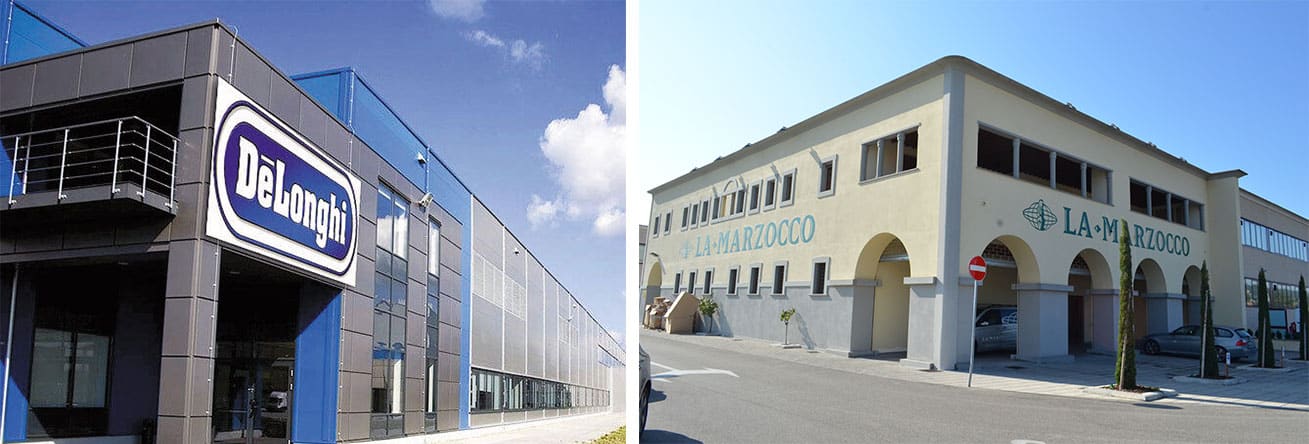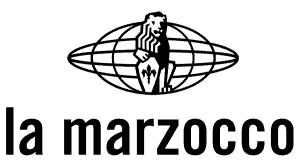De’Longhi And La Marzocco Merger – Good Or Bad For The Coffee Industry?
The recent merger of De’Longhi and La Marzocco is a big deal in the coffee world.
In case you don’t know the story: De’Longhi, a powerhouse in the world of coffee machines, acquired La Marzocco in 2023, which is a much smaller company renowned for its high-end, boutique espresso machines.
And this isn’t just about a big company getting bigger, even though many in the coffee world foreshadow it this way. Not all baristas have gone to business school…
It’s actually about bringing together the best of both worlds, traditional craftsmanship and cutting-edge technology, and creating synergies that drive investor value.
As someone with a Master’s in Business, I see this as a smart move. Let me explain why.
Background to the De’Longhi and La Marzocco Acquisition
De’Longhi, an established leader in the world of home appliances, was established in 1902. Its transformation into a globally recognized brand started in the 1970s under Guiseppe De’Longhi. They initially focused on heating systems, and entered the coffee machine market in the mid-1990s.
The move into coffee machines, along with their acquisition of Kenwood Appliances in 2001, solidified De’Longhi’s status in the small domestic appliance sector. De’Longhi is no stranger to smart acquisitions.
La Marzocco is highly respected in the coffee world for its technological innovations and craftsmanship.
Known for high-quality espresso machines hand-built in Florence, La Marzocco has been a symbol of excellence and a favorite among coffee geeks everywhere.
The Merger
While some see the merger as the end of the craft of coffee and going industrial, I see it as a strategic alliance of two powerhouses.
It combines De’Longhi’s broad market presence and diverse product range with La Marzocco’s artisanal mastery of espresso machines. This merger/acquisition (call it what you will) aims to leverage the strengths of both companies, potentially leading to innovative product development and expanded global reach.
- For De’Longhi, it’s an opportunity to enhance its presence in the luxury espresso machine segment. Using technology from La Marzocco will improve De’Longhi machines by a lot…
- For La Marzocco, it opens doors to De’Longhi’s extensive distribution network, which it has been severely lacking in the past. It will reach a wider market and audience, which is great for the art of coffee.
- I think the union of these two companies will result in the further development of the coffee industry, driving innovation and growth.
The Trend of Mergers in the Coffee Industry
The coffee industry is witnessing a significant trend in mergers and acquisitions, reshaping its global dynamics.
For instance:
- De’Longhi’s acquisition of Eversys in 2021 marked a strategic expansion into the automated espresso market.
- Similarly, the Melitta Group’s merger with Corsino Corsini highlights the growing interest of global companies in specialty coffee, a sector that’s been gaining consumer attention.
- Additionally, JDE Peet’s acquisition of Campos Coffee was a smart move towards product diversification and strengthening its market global presence, particularly in the Pacific region.
These mergers are not merely about expansion but also about embracing innovation and technology.
Larger companies are strategically acquiring smaller, innovative brands to enhance their competitive edge and respond to evolving consumer demands.
BigCupOfCoffee.com
As noted in the Coffee Intelligence article, these consolidations reflect a strategic shift in the industry, with major players seeking to blend their strengths with the innovative capabilities of their acquisitions.
And what will you and I as consumers benefit from this? These partnerships shape the industry to offer diverse and technologically advanced coffee experiences to you and me alike.
For example, if De’Longhi integrates some of La Marzocco’s tech into their espresso machines, home baristas will get better coffee at home, without the high cost of a real La Marzocco machine. Sign me up for one of those new machines, please!
Economies of Scale and Joint R&D Synergies
Mergers like De’Longhi and La Marzocco bring significant economies of scale, optimizing production costs and broadening distribution networks. This efficiency can lead to more competitive consumer pricing.
Some notable coffee industry mergers are:
- Nestlé’s $700 million deal to acquire Blue Bottle in 2017
- Tschibo acquired Matthew Algie in 2016, and Capitol Foods in 2018
- Nestle Nespresso S.A. and OpenSC’s collaboration for supply chain transparency in KAHAWA ya CONGO coffee
- De’ Longhi acquiring the Swiss Eversys
- Lavazza acquiring MaxiCoffee (France)
These, and many more smaller acquisitions show how joint R&D efforts lead to advanced, consumer-focused products, synergies, and new distribution channels for the companies.
Capitalism and Growth
Growth and maximizing shareholder value are key drivers for businesses, as it is for De’Longhi, a publicly traded company. Mergers strategically cater to these objectives.
For instance, after the merger of JDE Peet’s and Campos Coffee, the expanded market reach and diversified product line bolstered JDE Peet’s financial performance, potentially enhancing its shareholders’ value.
De’Longhi’s acquisition of various brands over the years has not only expanded its product offerings but also likely increased its market valuation, a direct benefit to its shareholders.
These examples illustrate that mergers are not market reactions. They are strategic moves to align with the capitalistic goal of growth and shareholder wealth maximization.
Maintaining Brand Identity and Operational Independence
After an acquisition, two things can happen.
- The acquired company’s brand is integrated into the parent company, the assets are assimilated, and the smaller brand name seizes to exist.
- The companies retain their brand identity and operational independence. This approach addresses concerns about brand dilution, allowing each brand to retain its unique value proposition and customer base.
As stated by De’Longhi, they are taking the 2nd route. La Marzocco will continue to operate with its distinct brand identity, preserving its artisanal and premium appeal in the market. This leverages strategic advantages, so La Marzocco will benefit from the resources and broader market access of the parent company.
For an acquiring company (like De’Longhi in this case), such a structure is advantageous as it combines their scale and resources with the agility and niche expertise of the acquired brand.
This balanced approach, when managed properly, should ensure sustained growth, market relevance, and customer satisfaction.
It keeps the core essence of the brands intact, while exploring new growth avenues and taking advantage of synergies.
I look forward to this era of consolidation, since I think it will bring more variety, quality, and innovation to coffee enthusiasts worldwide.
What do you think? Will La Marzocco suffer from this deal? Let me know your thoughts below.




I’m intrigued by the possibilities this merger opens up. Will De’Longhi’s scale compromise La Marzocco’s boutique quality, or will their high standards push De’Longhi to new heights? It’s a complex dance between maintaining artisanal integrity and embracing technological progress.
I’ve owned both De’Longhi and La Marzocco machines over the years. The former offered convenience, while the latter brought a refined espresso experience. After reading the article, I’m cautiously optimistic that this merger could breed a line of machines combining both qualities. Still, I wonder how this will affect the price point for consumers looking for premium options.
Interesting piece, but I’m still a bit confused. How exactly will De’Longhi’s tech improve La Marzocco’s machines, which are already top-notch? Are we talking about digital features, or is there more to it?
Time will tell.
It’s hard to ignore the pattern of mergers in the coffee scene these days. However, the real test of a successful merger is in the cup, so to speak. Is the resulting product going to reflect the strengths of both companies? Only time will tell, but I’m hopeful we’ll see some impressive innovations around the corner.